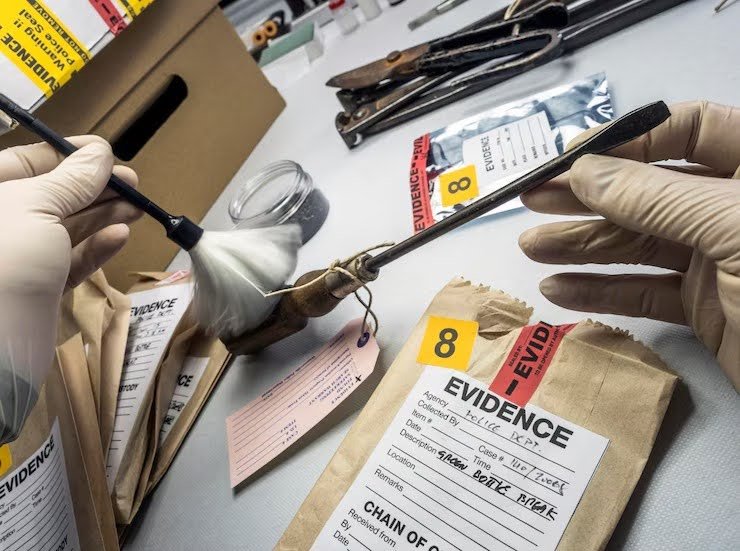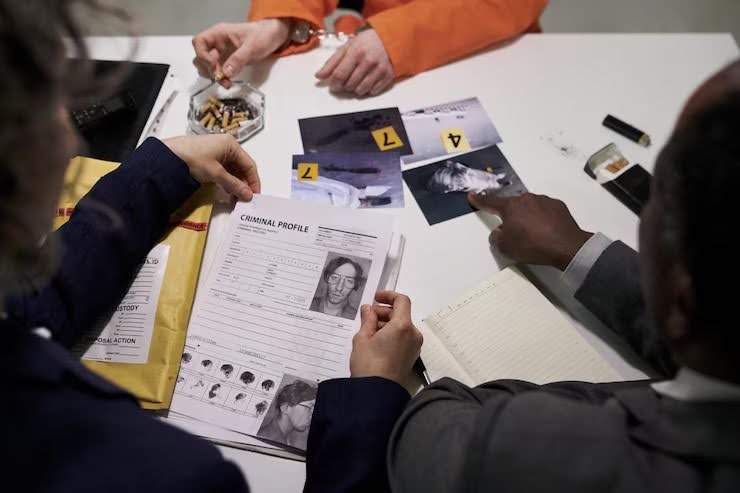
In Singapore, organised crime syndicates face severe penalties and orders that are designed to break down their operations and deter others from engaging in similar illegal activities. The penalties are strict, and for good reason, organised crime can have far-reaching negative impacts on society, affecting everything from public safety to economic stability.
Understanding the legal consequences of engaging in organised crime in Singapore is essential, both for those involved in such activities and for the public to recognise the legal protections in place.
In this blog, we’ll explore organised crimes: penalties/orders syndicates face in Singapore, shedding light on the heavy sanctions and orders the law imposes on these criminal groups.
What Constitutes Organised Crime in Singapore?

Organised crime in Singapore is defined by a structured group of individuals working together with the aim of committing illegal activities. These groups typically have a clear hierarchy, with designated roles and responsibilities assigned to members, and often operate covertly to evade detection by law enforcement.
Some common examples of organised crime include:
1. Drug Trafficking
One of the most prominent forms of organised crime in Singapore is drug trafficking. The Misuse of Drugs Act outlines strict penalties for those involved in the trafficking, manufacture, or distribution of illegal substances. The syndicates involved in drug trafficking typically have a global reach, coordinating the smuggling, distribution, and sale of illicit drugs across international borders.
2. Human Trafficking and Exploitation
Human trafficking is another significant form of organised crime. This includes the illegal trade of people for forced labour, sexual exploitation, or other forms of abuse. These criminal groups often prey on vulnerable individuals, using deceit, coercion, or force to control them.
The Singaporean government has enacted stringent laws under the Prevention of Human Trafficking Act to combat these activities, imposing severe penalties on those involved in trafficking operations.
3. Illegal Gambling
Organised crime syndicates often run illegal gambling operations, including underground casinos and illegal betting rings. While gambling is legal in specific forms in Singapore (such as at Resorts World Sentosa or the Marina Bay Sands), syndicates involved in illegal gambling frequently operate in the shadows, offering illicit betting options that bypass regulatory controls.
4. Money Laundering
Criminal syndicates frequently engage in money laundering to make illicit gains appear legitimate. This involves processing illegally obtained funds through various financial channels to obscure their criminal origins.
The Corruption, Drug Trafficking, and Other Serious Crimes (Confiscation of Benefits) Act helps combat money laundering by empowering law enforcement agencies to seize and confiscate criminal assets.
5. Arms Trafficking
While less common than drug trafficking, arms trafficking is another form of organised crime in Singapore. Syndicates may be involved in the illegal importation, exportation, or sale of firearms, contributing to instability and posing significant risks to public safety.
Singapore has strict laws regulating arms and ammunition, and those found guilty of illegal possession or trade of weapons face severe penalties.
6. Corruption and Bribery
Organised crime can also involve corruption and bribery, particularly in sectors like construction, procurement, or public services. Criminal groups might operate through bribes or other corrupt practices to gain contracts, access to sensitive information, or other benefits.
Singapore’s Prevention of Corruption Act addresses such crimes, imposing penalties for public and private sector corruption.
Penalties for Organised Crime Syndicates

Singapore takes a firm stance on organised crime. Those found guilty can face severe penalties, including long prison sentences, hefty fines, and in some cases, even the death penalty. Let’s take a closer look at what offenders might expect in the event of a conviction.
1. Imprisonment
Organised crime syndicates face lengthy prison sentences, particularly when the crime is of a serious nature, such as trafficking in controlled drugs or human trafficking. The maximum sentences can range from several years to life imprisonment, depending on the offence.
2. Fines
Syndicates caught engaging in illegal activities can also face significant financial penalties. These fines are meant not only to punish the offenders but also to act as a deterrent for future offenders. In some cases, individuals may be fined up to $500,000 or more.
3. Capital Punishment
For the most severe crimes, including large-scale drug trafficking, the death penalty can be imposed. This remains one of the most controversial and yet effective deterrents for organised crime in Singapore. The Death Penalty is applied in accordance with the Misuse of Drugs Act for cases involving specific quantities of controlled substances.
Court Orders Against Syndicates
Aside from the criminal penalties that syndicates face, the Court in Singapore has the authority to impose specific orders to dismantle organised crime groups effectively.
1. Forfeiture Orders
The Court may impose forfeiture orders to confiscate assets that have been obtained through criminal activity. This can include property, money, and other assets linked to the illegal syndicate’s operations.
2. Restraint Orders
To prevent criminal groups from using financial resources to continue their illegal activities, the Court may also impose restraint orders. These orders freeze the assets of suspects while investigations are ongoing, helping to limit the syndicate’s ability to operate.
3. Disbanding Orders
The Court may order the disbandment of organised crime syndicates, including the closure of businesses or operations linked to the criminal group. This order is an effective way to disrupt the activities of a syndicate and remove any infrastructure that may support illegal endeavours.
Conclusion About Penalties Of Organised Crimes In Singapore
The penalties and Court orders faced by organised crime syndicates in Singapore are robust and aim to punish offenders and deter others from engaging in similar activities. With its comprehensive legal framework and vigilant enforcement, Singapore continues to be a stronghold in the fight against organised crime.
If you or someone you know is facing charges related to organised crime, it’s crucial to seek legal advice from a trusted professional.
At Tembusu Law, we pride ourselves on being the best criminal lawyers in Singapore, offering expert guidance and support during difficult times.
Take the first step today and reach out to our team for a free consultation.
Frequently Asked Questions About Penalties Of Organised Crimes In Singapore
What Are The Penalties For Organised Crime In Singapore?
The penalties for organised crime in Singapore can include imprisonment, hefty fines, and, in severe cases, the death penalty.
What Is The Role Of The Court In Organised Crime Cases?
The Court plays a key role in imposing penalties, ordering asset forfeiture, and disbanding criminal syndicates to prevent further illegal activity.
How Does Singapore Fight Organised Crime?
Singapore fights organised crime through strict laws, penalties, proactive prevention measures, and effective law enforcement collaboration.
What Happens To Assets Obtained Through Organised Crime?
The Court may impose forfeiture orders to confiscate assets obtained through criminal activities, including property, money, and other valuables.
Can A Criminal Syndicate Be Shut Down In Singapore?
Yes, the Court can issue disbanding orders, closing down businesses and other operations connected to the syndicate.
Is The Death Penalty Used For Organised Crime In Singapore?
Yes, the death penalty is applied in cases of serious crimes like large-scale drug trafficking under the Misuse of Drugs Act.